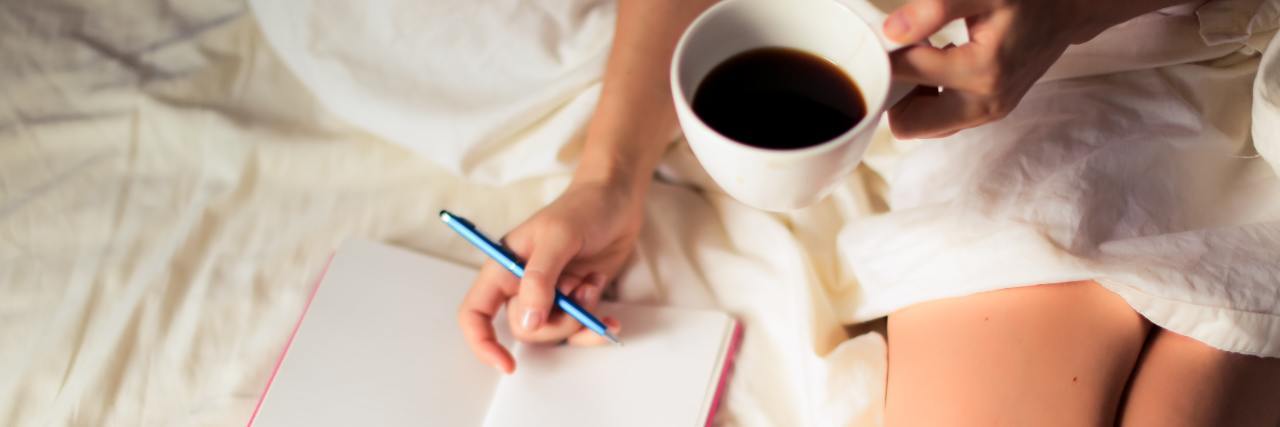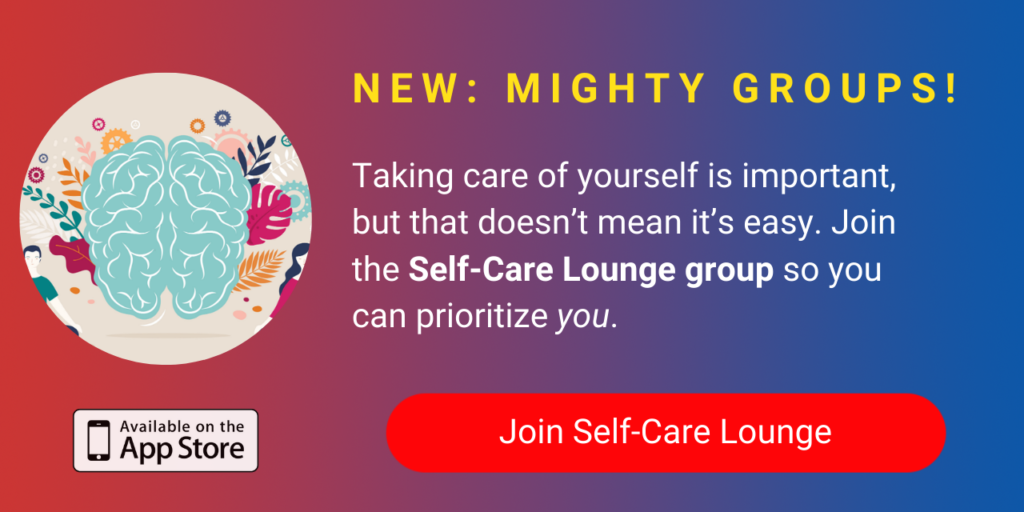As someone with bipolar disorder, I’ve educated myself enough to understand that it is a physical disorder of the brain, and not a character problem. So I keep my appointments with my nurse practitioner, I keep up with my meds and I’m grateful that I’m able to at least somewhat level out my neurotransmitters with medication. Medication is the crux of my bipolar treatment approach.
When it comes to the “softer” sciences of talk therapy, meditation, changing thought patterns and things like that, I am personally much more skeptical. To me personally, it seems like a less direct way to stability. I have friends and family who swear by these methods, and I’ve seen good results, so I know they are effective. I just don’t seem to have the attention span to meditate. I’m told that’s all the more reason to learn to do it.
There are a variety of therapy apps out there. I’ve tried the meditation exercises but found them more frustrating than helpful. There is one exercise on my therapy app, however, that I have found extremely helpful, and that is practicing gratitude. The app will prompt me with a specific question. For example, it might say, “Make a list of the things about your family that you are grateful for.” Or, “What factors today helped you to maintain a good mood?” Or simply, “List the first things that come to your mind for which you are grateful.”
The questions are open-ended so you can really take it in whatever direction you want. There are no right or wrong answers. Some people might lean more toward material things, like their house, food on their table, a decent car to drive, things like that. I tend to think of people first, so I always list my kids and certain other friends and family members for whom I’m grateful.
If you’re experiencing depression you might be tempted to say, “I have nothing to be grateful for.” Maybe you’ve experienced one devastating event after another. In this case, you might have to work harder to come up with something you are grateful for, but try to name at least one thing. Did you have a good meal today? Did you talk to a friend? Did something online make you laugh? Nothing is too small if it gave you a sense of gratitude, even just for a moment.
I still might work on learning to meditate, but in the meantime, I’ll continue to make use of practicing gratitude. I find it very easy to think of things I’m grateful for. I was homeless for over a year about a decade ago, so I am thankful every time I use the bathroom, crawl into my own bed, take a shower or cook a meal in my kitchen. I live in a very modest, bare-bones, low-income apartment, but through thrift stores and some lucky breaks I’ve been able to decorate it in a way that makes me feel calm and happy. I’m grateful for the assistance program that makes it possible for me to rent an apartment while living only on SSI disability (which I am also grateful for).
Try it! You can make it a part of your daily journaling. If you pray, you can list out the things you are grateful for during your prayer. You can use one of the therapy apps. And you don’t have to list the same things every day. Try to think of things you haven’t thought of before.
It’s not a miracle, but I find that the more I do this exercise, the easier it becomes. Then I find myself appreciating things more when I’m going about my daily routine. It’s more of a mindset than just an assignment. Being grateful doesn’t mean your life is perfect or that you don’t have serious challenges. It just means that you are giving your brain permission to appreciate something for a second. You’re creating new, more positive brain pathways. You’re reinforcing those pathways every time you practice gratitude.
So if you find meditation difficult, consider turning your attention toward gratitude. Start small and keep at it every day. It will get easier and you’ll be training your brain to see the good things that are around all of us.
Photo by Ava Sol on Unsplash


